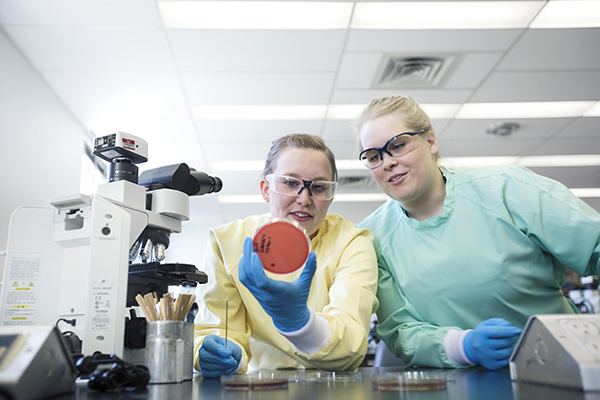
Urodynamics tests are a group of medical procedures used to diagnose the health of the bladder and urinary tract. The tests are used to diagnose many issues, including those that cause pain or discomfort in the bladder and urinary system.
Urodynamics helps your doctor diagnose and treat bladder issues, like urinary incontinence. These disorders can result in difficulty urinating and even a repeated infection of the urinary system.
Our front desk will be the first place you and/or your child need to check in. We will gladly help you to register, and then we'll take your kid to the test room.
You and your child must fill a special tub with sterile tap water, and then insert it into your bladder. We will measure the size and elasticity of your uterus, its ability to squeeze or contract, any leakage, and unsafe pressures.

After a few seconds, you'll be asked urinate into an apparatus that gives you a picture on how much urine is moving through your bladder. While you are urinating we may ask you to drink some liquid. This can help us determine if the urine flow rate is too fast or too slow.
This will help your doctor determine if a bladder blockage is present. A bladder blockage is when the urethra - the tube that transports the urine from the renal to the bladder - becomes blocked. This can cause a range of symptoms such as a sensation of burning when you urinate, or a feeling your bladder has become full.
Urodynamics may also be used by your physician to detect muscle and nerve damage which could be causing the urinary problem. Sensors placed near the urethra or rectum record nerve and muscle activity.
These tests are usually performed without sedation, though in some cases a local anesthetic is required for the procedure. Your doctor will explain what the risks are and how to avoid them.
The urodynamics chair will be placed in front of you. Depending on the test, your doctor will insert a special cath into your abdomen or bladder. These thin catheters can be easily inserted by a nurse or doctor.

The doctor will then inject you with a saline solution that helps to keep your bladder soft and flexible, as well as helping to keep it inflated. This is an easy and quick way to test your bladder function. It may be helpful in diagnosing bladder or urinary tract problems.
Once you have the saline in the machine, you are asked to sit and urinate. The machine will show you the flow of your urine. Your doctor will insert an urethra-bladder catheter that will be able measure the pressure within your bladder while you urinate.
FAQ
What are the different health care services?
The most important thing for patients to know is that they have access to quality healthcare at any time. We're available to assist you with routine or urgent care.
There are many options for appointments. These include walk-ins, same-day procedures, emergency department visits and outpatient procedures. Home care visits are also available for patients who live away from our clinic. You don't have to come into our office if you are not comfortable. We'll make sure that you receive prompt care at your local hospital.
Our team includes dentists and doctors as well pharmacists and nurses. Our goal is to make each visit as painless and convenient as possible.
What is a health system in public health?
Health System refers to all the activities involved in providing medical services for a population. It includes service delivery, financing, regulation, research, education, training, and information systems.
What are the different types of health insurance?
There are three main types of health insurance:
-
Private health insurance covers most of the costs associated with your medical treatment. This type insurance is often purchased directly by private companies. Therefore, you will pay monthly premiums.
-
While public insurance covers the majority cost of medical care there are restrictions and limitations. Public insurance doesn't cover everything.
-
You can use medical savings accounts (MSAs), to save money for future healthcare expenses. The funds are kept in a separate account. Most employers offer MSA program. These accounts are tax-free, and they accumulate interest at rates similar to bank savings accounts.
What does the "health care” term mean?
The delivery of services that promote good mental and physical health is called health care.
What is an infectious disease?
An infectious disease is caused either by bacteria, viruses, parasites or both. Infectious illnesses spread quickly via close contact. Mumps, rubella (German Measles), whooping cough, rubella (German Measles), measles and mumps are some examples.
What are the health services?
Patients need to be aware that they have 24/7 access to high-quality healthcare. No matter whether you require an urgent appointment, or a routine exam, we are available to help.
We offer many types of appointments including walk-in surgery, same-day operation, emergency department visits, outpatient procedures and so on. We also provide home care visits for those who live far from our clinic. We can also arrange for home care visits if you do not feel at ease in our office.
Our team includes doctors, nurses, pharmacists, dentists, as well as other professionals who are dedicated to providing exceptional patient service. Our goal is to make your visit as comfortable and painless possible.
Why do we need medical systems at all?
In developing countries, many people lack basic medical care. Many people from these areas die before they reach middle-age due to diseases like tuberculosis or malaria.
People in developed countries get routine checks and see their general practitioners for minor ailments. Many people are still suffering from chronic diseases like heart disease and diabetes.
Statistics
- Consuming over 10 percent of [3] (en.wikipedia.org)
- The health share of the Gross domestic product (GDP) is expected to continue its upward trend, reaching 19.9 percent of GDP by 2025. (en.wikipedia.org)
- About 14 percent of Americans have chronic kidney disease. (rasmussen.edu)
- The healthcare sector is one of the largest and most complex in the U.S. economy, accounting for 18% of gross domestic product (GDP) in 2020.1 (investopedia.com)
- For instance, Chinese hospital charges tend toward 50% for drugs, another major percentage for equipment, and a small percentage for healthcare professional fees. (en.wikipedia.org)
External Links
How To
How to Find Home Care Facilities
People who need help at home will benefit from the services of home care providers. These include elderly persons who are unable to move independently and disabled people with chronic conditions such as Alzheimer's. These facilities provide services like personal hygiene, meal preparations, laundry, cleaning and medication reminders. They also offer transportation. They often work in close collaboration with social workers, medical professionals, and rehabilitation specialists.
It is best to get recommendations from your friends, family, and local businesses. After you have identified a few providers, you can inquire about their experience and qualifications. Look for providers that offer flexible hours to accommodate your needs. Also, check if they offer 24/7 emergency response.
Your doctor or nurse might be able to refer you. If you're not sure where to start, try searching the internet for "home health care" and "nursing house". For example, you could use websites like Yelp, Angie's List, HealthGrades, or Nursing Home Compare.
For further information, you may call the Area Agency on Aging (AAA), or Visiting Nurse Service Associations (VNA). These agencies will provide a list of local agencies that offer home care services.
Many home care agencies charge high rates for their services. This makes it important to find the right agency. In fact, some agents charge up to 100 percent of a patient’s annual income. To avoid this problem, you should be sure to choose an agency that has been rated highly by the Better Business Bureau. Ask for references from clients who have used your agency before.
Some states even require home care agencies to register with the State Department of Social Services. To find out what registration requirements your agency must meet, check with your local government office.
Consider these factors when looking for a homecare agency.
-
Be cautious of companies that require you to pay upfront in order to receive services.
-
Choose a well-established, reputable company.
-
Get proof of insurance, especially if you're paying out of pocket.
-
Make sure that the state licenses the agency you hire.
-
Get a written contract that outlines all costs involved with hiring an agency.
-
Confirm that after discharge, the agency will provide follow-up visits.
-
Ask for a listing of certifications and credentials.
-
Don't sign anything until you have read it.
-
Read any fine print carefully.
-
You should verify that the agency you are dealing with is insured and bonded.
-
Ask how many years the agency has been in business.
-
Verify the license of the State Department of Social Welfare for the agency.
-
Find out whether there are any complaints against the agency.
-
Contact your local government office that regulates home-care agencies.
-
Ensure that the staff member answering the phone is qualified to answer questions about home care.
-
Contact your attorney or accountant to ensure you understand the tax implications of using home care.
-
Always request at least three bids from each agency that you contact for home care.
-
The lowest bid is the best but you should not settle for $30 an hour.
-
Remember that you may need to pay more than one visit to a home care agency daily.
-
Take the time to read all terms and conditions before signing any contract.